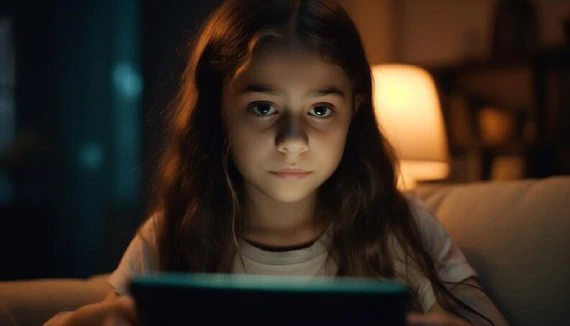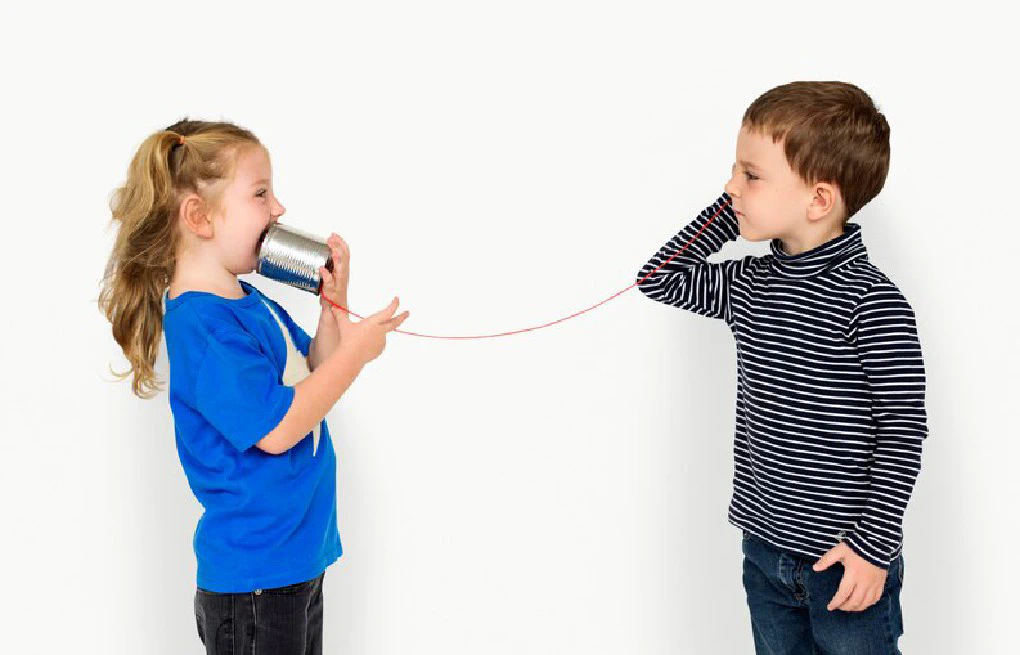
What are the Effects of Early Screen Watching on Children?
Questions that almost every parent wonders “What happens if he sees a screen? He didn’t see his brother, …


Every baby who opens his eyes to life needs communication by nature. Language development goes through many stages in the process of acquiring the use of verbal expressions for communication.
In the first weeks of life, when no sound production is observed yet; Babies express their basic needs such as hunger, lack of sleep or dirty diapers by developing different cries and expect their mother/father to understand this communication they are trying to establish.
In the first month, in addition to these cries, the production of sounds that are a sign of contentment begins to be seen in babies. As the baby grows, its range of sounds expands as the head-neck anatomy changes, and it begins to produce sounds closer to the speech sound.
Between 2-5 months, the baby starts to make ‘aa,ou’ sounds that we call cooing/comfortsounds. From the 6th month, we see that the vocal play process is started and babies start to use single syllables (ah, ba, ma).
It is observed that infants play these monosyllabic expressions by using them repeatedly. This period can be described as the period when sound imitations started. In this process, it is known that reinforcing the child’s production and being a model contributes to the progress of speech development.
In the first year of life, by the end of the 12th month, although meaningful word production has been gained, by the 18th month children generally focused on monosyllabic expressions. An example of this is the use of ‘ka’ instead of ‘pen’ and ‘ba’ instead of ‘car’.
The child’s vocabulary expands from the 18th month, which we describe as a word explosion and expect intense increases in language production. And starting from the 18th month, children begin to understand the meanings of the expressions used. In other words, when it is said to ’throw the ball’ or ‘give the car’, he can now understand that he needs to do an action with that object.
From the age of 3, more meaningful and quality communication begins to be established with children whose semantic (meaning) understanding of the language gradually develops in the 18-36 month period.
Although language development steps follow the same order as in all developmental areas, the speed of development from child to child may differ.
What is delayed speech?
If the child does not have language development skills appropriate for his/her age level, it is called ‘delayed speech’. It is possible to say that this situation is affected by many factors. However, parents can often ignore environmental mistakes made with approaches such as ’the uncle spoke late’, ‘it doesn’t always stay like this, or of course he will talk one day’, ‘he doesn’t speak, but I understand what he is saying’.
What are the factors affecting speech delay?
Middle ear infections that occur after flu diseases at the age of 0-3 can cause damage that negatively affects the hearing quality of children. Therefore, repeating the hearing test every 6 months in this time period is especially important for language development.
In addition, new research presented at the 2017 Pediatric Academic Societies meeting revealed that the increase in the time spent by children under the age of 2 with their phone, television and tablet is directly proportional to their late speech.
Articulation disorders (inability to produce sounds) or phonolological disorders (don’t say a tap instead of a door), which are more common in children who speak late, are effective in their academic success in the future.
Besides these;
Inability to establish game processes that require face-to-face and mutual communication from an early period Not introducing the child to books from a young age Even if he does not look directly, the ’television noise’ in the background in the area where the child is Not appreciating the child’s effort to speak and not imitating the sounds he makes Talking to the child Understanding the child immediately with their signs or expressions like ‘uh-uh’ and giving them what they want Expecting too much from the child and constantly asking questions or not giving what he wants until he says it (say water, if you say water, I will give it) Is a late-talking child irritable?
Yes, dear parents, your child is getting irritable because he cannot express himself comfortably like his peers.
Because his mother, who understands him from a small sign at home, and his father, who gives everything he shows without having to say anything, is outside, unfortunately, he is not with him in the nursery. The child, who is used to being understood so easily and quickly, gets angry when he is not understood by his peers or another adult. She begins to show behaviors such as crying, pushing her friends, pulling hair as a way of expressing herself.
In addition, the child, who sees that he cannot be understood when he is alone among other people, does not want to go to a place without a mother or father, just like an individual who does not want to travel without an interpreter in a foreign country where he does not know the language. When one of his parents is not present, it doubles the grumbling and crying.
While this situation negatively affects the personality and self-confidence development of the child, it also hinders his sociality. Parent to these behavioral problems that delay social adaptation The awareness of children emerges especially during the beginning of kindergarten. When this problem, which parents are also aware of, reveals the seriousness of the situation with the negative feedback from the school, a big question mark appears in the minds of the parents:
What should I do now?
The first thing to do is to accept the child as an individual. Then you have to empathize.
As mentioned before, the main reason for the acrimony in children is the wrong parental attitudes that have been going on since infancy. In that case, it is possible to overcome these problems and contribute to the progress of the child’s language development by changing these attitudes with the right ones in the process.
Advice for parents
Set up face-to-face games with your children. While this supports social interaction, the child’s following you and your mouth movements in this process supports the ‘imitation’ skill, which is the first step of language development.
Include simple audio repetitions frequently in your games and book reading processes. Because the first sound production starts from simple syllables and these are the sounds that are the easiest to imitate. As the child produces these simple sounds he hears from you, he sees that he can speak and encourages himself.
Read a book every day. While reading a book, be in a mutual position where your child can see you and look at both the book and you.
When your child wants something, instead of forcing him to say something or giving it right away, be a model by saying the name of the desired object with short phrases such as “oh my beautiful girl is thirsty, let me give you a glass of water”, “do you want the ball, let’s play ball together”.
Do not engage in intense instructional attitudes while supporting object recognition. Do not try to teach by slowing down your speech by spelling ‘glass, come on, say baar-daak’. At the age of 0-3, the child’s life is based on play and the best quality education is provided through play. For this reason, with your expressions such as “oh, there is a very beautiful dog here, he says havhav” in the game, you both provide a good language development support and support object learning.
Allow your child to talk and give feedback on the meaningful or meaningless sounds he makes. For example, your child saw a toy and is trying to tell something by showing it. When his speech is finished, you can answer, “Yes, it is a very nice toy, we can play together”. The child understands that he can communicate in this way and can express himself.
Do not speak for your child. Give him the opportunity to express his feelings and watch. And make sense of the sounds he uses while trying to express himself. Let’s say your child is very happy to go to the park and is trying to explain it. Be a model for the child by saying, “Long live, we came to the park, we love the park”.
Prof Dr Burak Tatli Pediatric Neurology Clinic
Child Development Specialist Elifnur Gürkan
Source
Karacan, E. (2000). Language development in infants and children. Clinical Psychiatry, 3(4), 263-268.

Questions that almost every parent wonders “What happens if he sees a screen? He didn’t see his brother, …

Knowing how to behave during the seizure is the most curious issue for families of children with epilepsy. Although …
Contact us before it’s too late for your health.
Don’t delay your health.